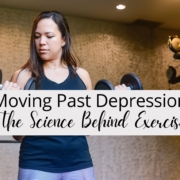The Benefit Of Challenge
We have a normal human tendency to avoid challenge. Challenge is hard. Yet, the human body is designed to continuously adapt to and thrive in a largely unpredictable environment. The desire to hang out in our comfort zone can actually work against us. Welcome to the powerful concept of hormesis.
Hormesis is the phenomenon whereby the body derives long-term benefits and strength from short, potent episodes of challenge or stress. It’s actually a term that has developed from toxicology, the study of toxins. Though we generally view toxins as totally negative. Scientists have learned that very small amounts of toxic exposure can actually support health. Hang with me here.
Benefit Or Detriment?
Most toxins can present a benefit or detriment to the body. The benefit can come where very small exposures support and boost the body’s antioxidant function. While the detrimental effect is experienced with higher levels or unremitting frequency of exposure that overwhelms our ability to respond.
Hormesis can come in the form of fasting, exercise, very low toxic exposure or episodic stress. These benefit us because they stimulate an appropriate response. You’ve heard the term “use it or lose it.” It applies in this situation too – if we don’t use our bodies’ capabilities, we tend to lose them. But regular, manageable challenge builds strength and resilience!
Consider these options to keep your body appropriately challenged:
Exercise
This is one with which we are fairly familiar. To build muscle, we stress the muscle with demand. This causes micro-tears, which stimulates healing and fortification, building up muscle tissue.
Or the demand may be more focused on building stamina by challenging the heart, muscles, and lungs with extended workouts. More recently, science is finding that using intervals of intense exercise with short recovery can build stamina effectively. Yet, excessive exercise for some individuals stops being hormetic and can become harmful.
Fasting And Calorie Restriction
A number of animal and human studies prove the positive effects of this practice. Short-term dietary deprivation can stimulate mechanisms in the body that promote vitality. Challenges such as extended overnight fasting (also called intermittent fasting) can activate stronger anti-inflammatory defenses, improve cellular energy production, and stimulate immunity.
They can also provoke autophagy (elimination of older/damaged cells) and improve blood sugar handling. But, excessive fasting for some individuals can become harmful if their bodies can’t process fatty acids well.
Nutrition Factors
Consuming a wide variety of vegetables and fruits provides the body with phytonutrients, including berberine, luteolin, and quercetin. These can provide hormetic effects by poking the bear, so to speak, and encouraging the production of antioxidants without our bodies.
Have you ever tried digestive bitters with a meal? They are made from plants with strong immune systems of their own to protect them from the sun’s radiation or defend against pests.
These immune compounds are basically toxins that help the plant survive. When we eat them, we experience some irritation and our bodies respond with immune- or antioxidant-stimulating effects.
You may have heard of some of the adaptogenic herbs – Tulsi, Ashwagandha, Rhodiola, Astragalus. These have been revered for centuries for their benefits in reducing stress by way of hormesis. Consumption of some of these herbs can stimulate your body to increase or decrease chemical reactions – hence their name inferring adaptation.
As with other categories, excessive intake for some individuals can stimulate a more harmful response. Examples would include consuming large amounts of cruciferous vegetables by someone sensitive to sulfur. Or someone with histamine intolerance eating a lot of fermented foods.
Temperature Manipulation
I’m sure you are aware of the healing effects of a fever – creating a less hospitable environment for pathogens. This is the hormetic power of sauna, which could be considered an artificial fever.
On the other extreme, cold plunges can induce hormesis to lower inflammation, stimulate circulation, and increase metabolism. But, excessive stimulation for some can be outside of hormesis.
The bottom line… hermetic stress consists of intermittent, low-level exposure to challenges that stimulate the body’s resilience. Much of the strength and vitality in the body must be stimulated by an ongoing demand for it.
Finding a balance between an appropriate challenge and an excessive level is key. Intermittent fasting can be beneficial, while long-term fasting can cause malnourishment and hinder thyroid function.
Fifteen minutes in the sun can boost Vitamin D, while a bad sunburn can flood the body with oxidative stress.
How do you support hormesis in your body? Do you engage in any of the forms that I have shared here? Are you sure that you aren’t damaging your body’s function by doing so intermittently?
There is not a protocol that applies to everyone because each of us is unique. Yet, if you find that your body lacks resilience, hormesis may be one aspect of your healing journey.
Are you trying to navigate your healing journey alone? You may have made progress, but there comes a point where you need fresh eyes and a different perspective. I offer that along with education and support to navigate more effectively. Let’s talk.









